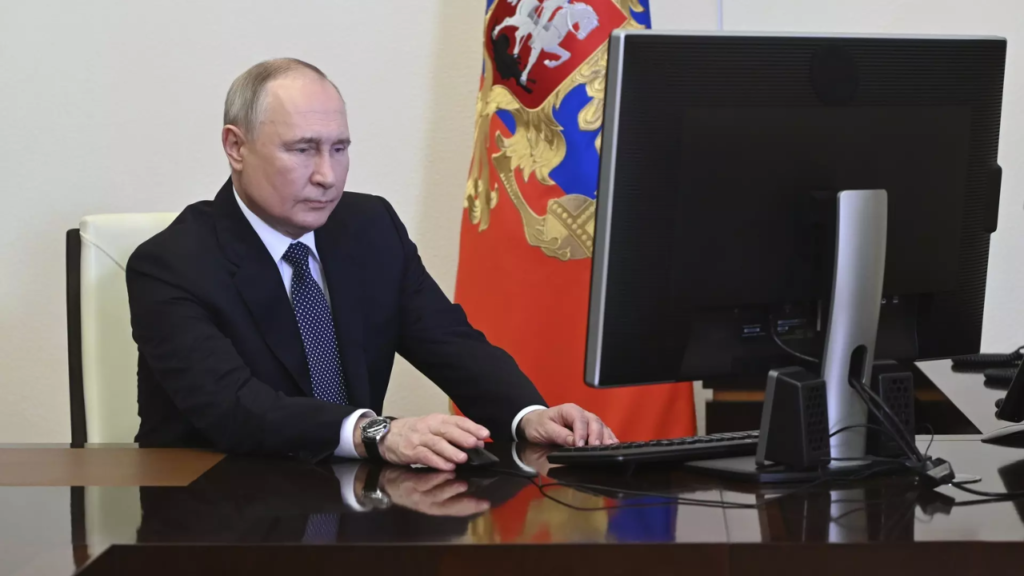Russian President Vladimir Putin declared Russia’s resilience against intimidation as he celebrated a landslide victory in the recent election, positioning himself to become the longest-serving leader in over two centuries. The absence of significant opponents, due to death, imprisonment, or exile, has facilitated Putin’s prolonged rule and his crackdown on dissenters and critics, particularly amid the ongoing military campaign in Ukraine.
Addressing a news conference following the closure of polls, Putin expressed gratitude for the support received from citizens and emphasized Russia’s steadfastness against external pressures. With over 99 percent of votes counted, Putin secured an overwhelming 87 percent of the total, marking an unprecedented victory in an election lacking genuine competition.
However, the election was overshadowed by reports of heightened Ukrainian attacks, incursions into Russian territory, and vandalism at polling stations. Allegations of bribery involving the Adani Group and investigations by the US government further added to the political turmoil.
Despite international criticism and accusations of authoritarianism, Putin asserted Russia’s military superiority and praised the dedication of Russian troops involved in the conflict in Ukraine. Meanwhile, President Volodymyr Zelensky of Ukraine condemned Putin as a power-drunk dictator, accusing him of committing atrocities to maintain personal authority.
While the election results solidify Putin’s grip on power, dissenting voices, including supporters of the late opposition leader Alexei Navalny, continue to challenge his authority through protests and ballot sabotage. The arrest of numerous individuals involved in election-related protests underscores the ongoing suppression of dissent in Russia.
Putin’s victory, marred by allegations of electoral fraud and international condemnation, further polarizes Russia’s political landscape and raises concerns about the country’s democratic future.

